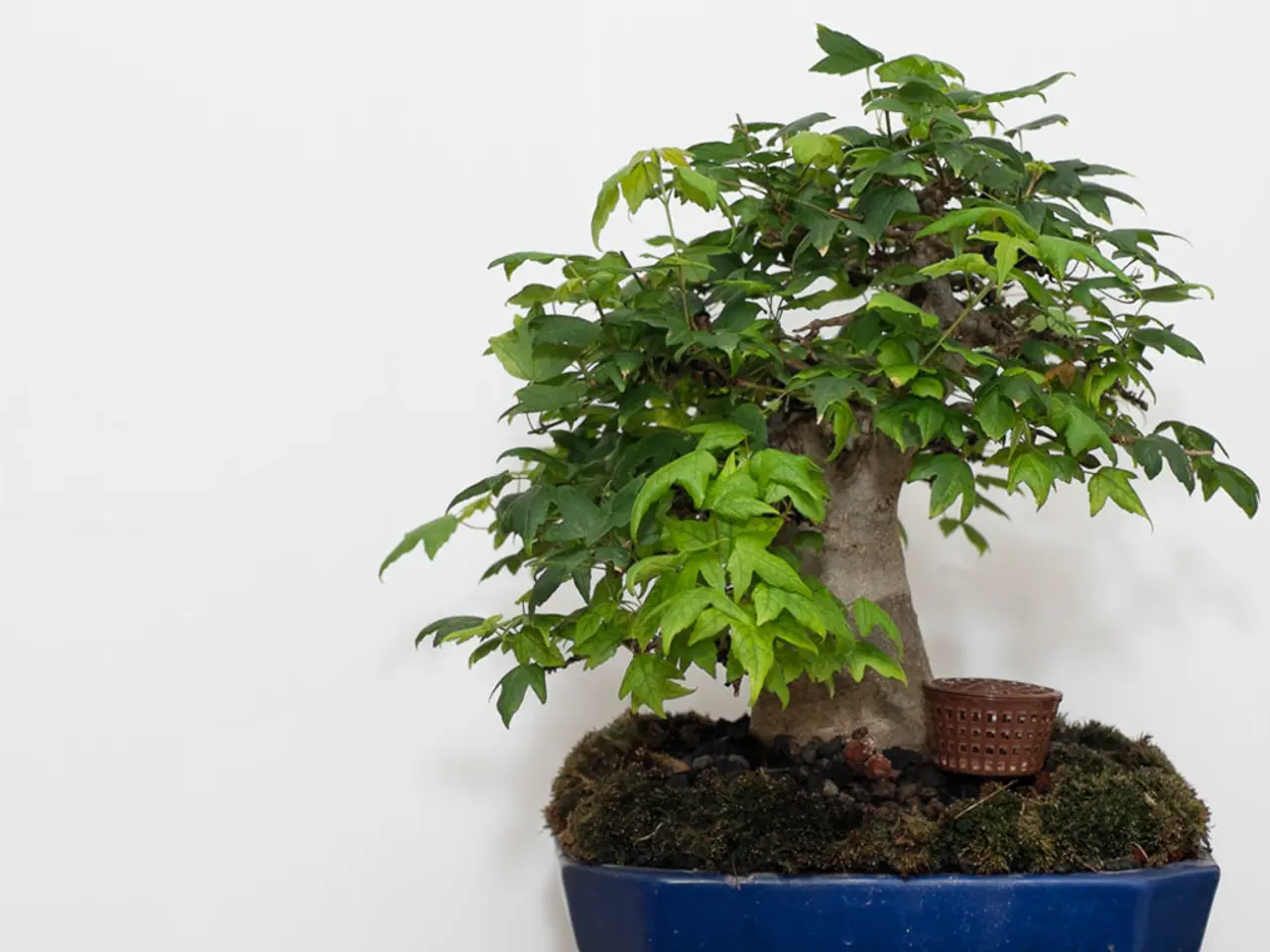Maintaining Organic Bonsai Tools: Discovering Eco-Friendly Options
When it comes to antique or vintage bonsai tools, exercise caution with organic maintenance methods to preserve their patina and integrity. Here's a guide to maintaining bonsai tools naturally and sustainably, using DIY methods that clean and condition the tools without harsh chemicals.
DIY Tool Cleaning and Conditioning Recipes
1. Baking Soda and Vinegar Solution
- Ingredients: 2 tablespoons of baking soda, 1 tablespoon of white vinegar.
- Instructions: Mix both ingredients in a small bowl to form a paste. Use this paste to scrub tool surfaces, then rinse with water. This solution helps remove dirt and grime without harsh chemicals.
2. Lemon Juice and Water Rinse
- Ingredients: Fresh lemon juice, water.
- Instructions: After cleaning, rinse tools with a mixture of equal parts lemon juice and water. The acidity helps remove any remaining grime and leaves a fresh scent.
3. Coconut Oil for Rust Prevention
- Ingredients: Coconut oil.
- Instructions: After cleaning and drying the tools, apply a thin layer of coconut oil to prevent rust and corrosion. This method is especially useful for metal tools.
4. DIY Tool Sanitizer
- Ingredients: 3% hydrogen peroxide or white vinegar.
- Instructions: Dip tools in a solution of hydrogen peroxide or white vinegar for a few minutes to sanitize them. This helps prevent the spread of diseases between plants.
Additional Tips for Sustainable Tool Maintenance
- Regular Cleaning: Clean tools after each use to prevent the buildup of dirt and plant residue.
- Drying: Always dry tools thoroughly to prevent rust on metal parts.
- Storage: Store tools in a dry place to maintain their condition.
These methods not only ensure the longevity of your bonsai tools but also contribute to a more sustainable gardening practice. Vinegar, lemon juice, tea tree oil, and neem oil are examples of natural rust removers and inhibitors.
Stubborn sap or resin can be removed from bonsai tools using a paste made from baking soda and olive oil. Natural tool care products can be equally effective in maintaining bonsai tools, providing a gentler, more environmentally friendly approach that prioritizes tool longevity and user safety.
Rust is a persistent enemy of bonsai tools, but it can be effectively combated using natural rust removers and inhibitors. Eco-friendly handle restoration techniques include using beeswax, coconut oil, and turpentine to protect and nourish wooden handles.
Embracing these eco-friendly alternatives contributes to a more sustainable future. Examples of DIY tool maintenance recipes include a rust-removing paste made from lemon juice, salt, and olive oil, a wood handle conditioner crafted from beeswax, coconut oil, and essential oils, and a metal polish created from baking soda, water, and white vinegar.
Minimizing waste in tool care can be achieved through strategies such as repairing and reusing tools, using reusable cloths and rags, opting for refillable lubricants, implementing a tool maintenance schedule, and repurposing old tools as plant labels. Sustainable storage options for bonsai tools include natural fibers like cotton or hemp, reusable cloth pouches, wooden toolboxes with natural finishes, upcycled or repurposed containers, and ventilated storage areas.
By adopting these practices, you can create a more sustainable bonsai garden while preserving the beauty and functionality of your tools. Happy gardening!
- Apart from maintaining bonsai tools, these methods promote a more sustainable lifestyle by reducing the use of harsh chemicals in cleaning and conditioning.
- If you're interested in fashion-and-beauty, consider using natural skincare products made from ingredients like lemon juice, tea tree oil, and neem oil.
- For food-and-drink enthusiasts, experiment with DIY cleaners made from common pantry items, such as baking soda and vinegar, to clean kitchen tools and surfaces.
- In home-and-garden, instead of buying new tools, try repairing and reusing them to cut down on waste and save money.
- In relationships, communication is key, much like regular cleaning and drying of bonsai tools to maintain their integrity.
- If you have pets, you can make homemade pets' shampoo using olive oil, lemon juice, and water for a gentle, non-toxic clean.
- For personal-growth and career-development, skills-training, and job-search, continuously seek opportunities for learning and improving, just as you would when caring for and sustaining your bonsai tools.





